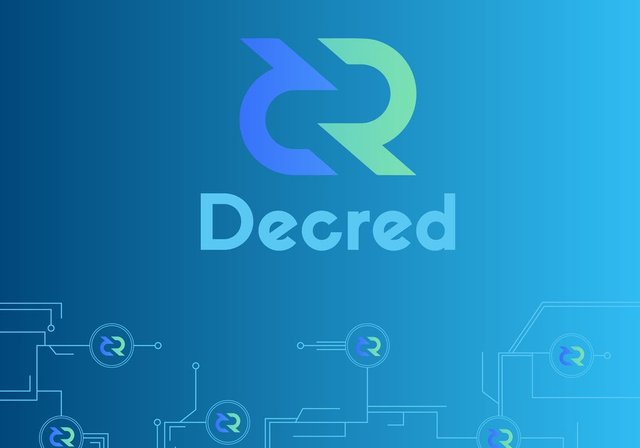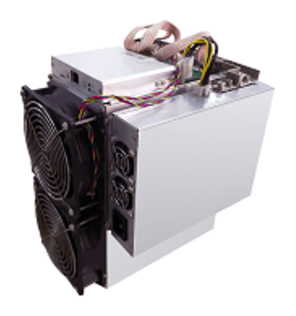YieldWallet.io launches Decred Staking pool

After weeks of preparation, testing and trial-and-error along with heapfuls of crucial assistance from the Decred developer community (special shout out to Joe Gruff on chat.decred.org, Thank you Joe if you’re reading!), we’re proud to announce the launch of the YieldWallet.io Decred staking pool. As described in our Decred 101 post, Decred is a hybrid proof-of-work and proof-of-stake system, which means a combination of Miners and Validators secure the Decred network.
We got our start with Proof-of-work, having mined (still going strong) Decred using Antminer DR5 miners for a little over a year.

The Antminer DR5. One of our favorite pieces of hardware.
The YieldWallet team then decided to do a deep dive and get involved with the Proof-of-stake aspect of the Cryptocurrency as well.
Earning rewards as a Decred Hodler — The basics
Decred holders get to buy tickets, which are currently going for 125–140 DCR each. Unfortunately, this means that you generally need to have atleast 125 DCR (Approx. 2800 USD currently) to participate in the Proof-of-stake rewards (with the exception of Split tickets and our plans to help alleviate this situation. More on that below).
Once a ticket has been included in a block it is considered immature for 256 blocks (approximately 20 hours). After that, the ticket enters the lottery pool where it waits to be chosen. A ticket has a 50% chance of being chosen in 28 days and a 99.5% chance of being chosen before ticket expiry (about 120 days).
Once chosen, the staker participates in validating a block and receives back the price of the ticket + a reward for participating. There is a 0.5% chance the ticket expires without participating, in which case the price of the ticket with no rewards is returned to the participants.
The way participants buy tickets is either through solo-staking (setting up a staking pool privately just for their use), or through a staking pool, which is where we come in. Staking pools provide the infrastructure for holders to buy tickets and more important participate when called upon to, and earn the rewards.
If the Staking pool is not online when a ticket is called upon, the rewards are lost. This is why uptime and missed tickets stats are key in choosing a Staking pool provider. We’ve written on this and other aspects of Staking pool choice below.
Staking pool Architecture

At the risk of offending very detail-oriented technical folks we’re just going to explain how a staking pool is setup, at a 30,000 Ft level. The Decred staking pool setup consists of what you could call voting stack(s) and a front-end (website).
A voting stack consists of 3 primary processes
a. dcrd, the Decred Daemon,
b. dcrwallet, the command line DCR wallet software and
c. stakepoold, the software responsible for buying tickets and for participating when called upon.
This part of the setup needs to be reliable and highly available to ensure tickets are not missed.
The staking pool front-end is a website where users can register themselves, receive an API key (which they will use to buy a ticket with the Staking pool), monitor the current status of their tickets and get overall stats on the staking pool itself. The overall uptime of the website itself, while a barometer of convenience will not impact the voting and delivery of rewards should there be intermittent issues.
Our staking pool setup
The YieldWallet.io setup includes 4 machines: 3 machines running our Voting stacks (stakepoold, dcrwallet, dcrd ) and 1 machine running our website front-end (decred.yieldwallet.io).
Each of these machines are in different geographies: Mumbai (India), Singapore, Virginia (US) and California (US) for added redundancy, should one geo region go offline.
How to choose a staking pool
The full list of staking pools can be found here: https://decred.org/vsp
So, how does one go about choosing a staking pool, assuming that there is no other information about specific providers that may have other plans to contribute to the Decred ecosystem.
Some of the key metrics are
Decentralization: As noted on the page itself, it’s generally desired that no staking pool owns more than 5% of the staked DCR (measured by proportion on the VSP list page). Any more than 5% means that one of the pillars of Decred (or any Cryptocurrency for that matter), it’s decentralization, isn’t where it should be. The degree of the problem of course depends on the specific numbers.
Missed / Missed %: It’s of particular interest to staking ticket holders to know what their staking pool’s performance has been with regards to showing up and participating when called upon. This is directly related to the rewards and the ROI from Staking.
Fees: Do the staking pools charge a reasonable fee given the level of service and uptime that they provide and/or their contribution to the Decred ecosystem. Given the current distribution, it appears that anywhere in the 2–3% range seems like the right number combined with an uptime performance of close to 0% misses on voting, for the pool in question.
Note also that too small a fee brings sustainability into question. Is your staking pool going to be around if it’s unprofitable. Any tickets you’ve purchased through them remain stuck until you are able to redeem them or until they expire, in the case of an untimely shutdown of the pool. Not an ideal situation, so choose wisely.
Age: How long has your Staking pool been around. This is an important indicator as well. Is your Staking pool ‘Lindy’ to borrow a term popularized by Author Nassim Taleb. On this front, YieldWallet.io doesn’t fare the best being the newest entrant into the Staking pool list. This will get better with the passage of time (and no other way unfortunately!)
Why Yieldwallet.io?
Why should you stake your Decred with Yieldwallet? Other than allocating tickets to us in the interest of Decentralization (we are the newest and smallest pool out there) the other reasons are
a. Although, it’s very early days, one can look at how we’re doing on other Cryptocurrency staking pools where we’ve been around longer. We’re #2 measured by a number of criteria including uptime and performance on the unsponsored list of bakers on www.tezos-nodes.com, for instance.
b. We plan to put out more educational material similar to some of the content in this post and our Decred 101 article, aimed at all technical levels. We really care about educating people about this highly under-rated (in our opinion) Cryptocurrency.
c. We’re building a Cryptocurrency Exchange that will not only feature Decred trading pairs against other Major Cryptocurrencies, but also DCR/INR (Indian rupee) pairs. We plan to also provide 24/7 market making liquidity for the Fiat/DCR pair.
d. We wish to help smaller DCR holders participate in the Proof-of-stake system. More on that in the next section.
Any fees we earn from our staking pool will be used for funding one of the projects described above.
Yieldwallet.io plans for Decred — A Cloud Wallet
Currently, as described above, one needs 125–140 DCR to participate in Proof-of-staking voting and rewards. This leaves a large number of Decred holders out of the process of securing the networks and earning rewards. Buying an ASIC miner to participate in Proof-of-work mining is not an inexpensive endeavor either.
So what is one to do? The Decred team recently introduced the concept of Ticket splitting. Using the Decrediton wallet and Ticket splitting software, as the name suggests anyone with a minimum of 5 DCR (112 USD currently) can join a ticket splitting session. These “sessions” are either private or public, and the public ones can be located in various telegram groups or in the #ticketsplitting:decred.org channel on Matrix. Once the amount needed to purchase a ticket is filled for a session the process of purchasing the ticket begins, and rewards are distributed back to participants in the proportion that they contributed.
While this is a big improvement over being left out in the cold from earning DCR, there needs to be a more convenient, less technical (for the average user) way to participate. YieldWallet.io is designing what we’re dubbing the “Decred Cloud Wallet’’, a way for users with any amount of DCR to participate in the staking process.
It will be a custodial solution (you wont have control of our DCR while it’s being staked), with ownership and risk characteristics similar to any Decred exchange out there. We’re currently in beta and conducting user focus groups as we want to get this just right. It will be a far more convenient way to participate, albeit with the custodial aspect. Every DCR holder will at least have a choice to participate if they choose when we release the wallet.
Stake to YieldWallet.io
So, you’ve decided to stake through us. How does one stake using the YieldWallet.io Decred staking pool? Assuming you meet the DCR ownership requirements outlined above (for now), you can head on over the decred.yieldwallet.io and register yourself. We’ve put together a handy guide on how to stake your DCR to us as well as how to buy DCR, along with some other handy tools here.
Connect with us
Join our communities and participate in the ongoing discussion.
Twitter, Facebook, Telegram, Email, Medium, LinkedIn
Please leave your comments and questions about Indra Crypto Capital, YieldWallet, Decred or anything else you’d like to talk about and we will be sure to get back to you.
this is a great idea from them...
Posted via Steemleo
yeah true.........
Posted via Steemleo
the yieldwallet team are really doing a wonderful job and they deserve a kudos...
Posted via Steemleo